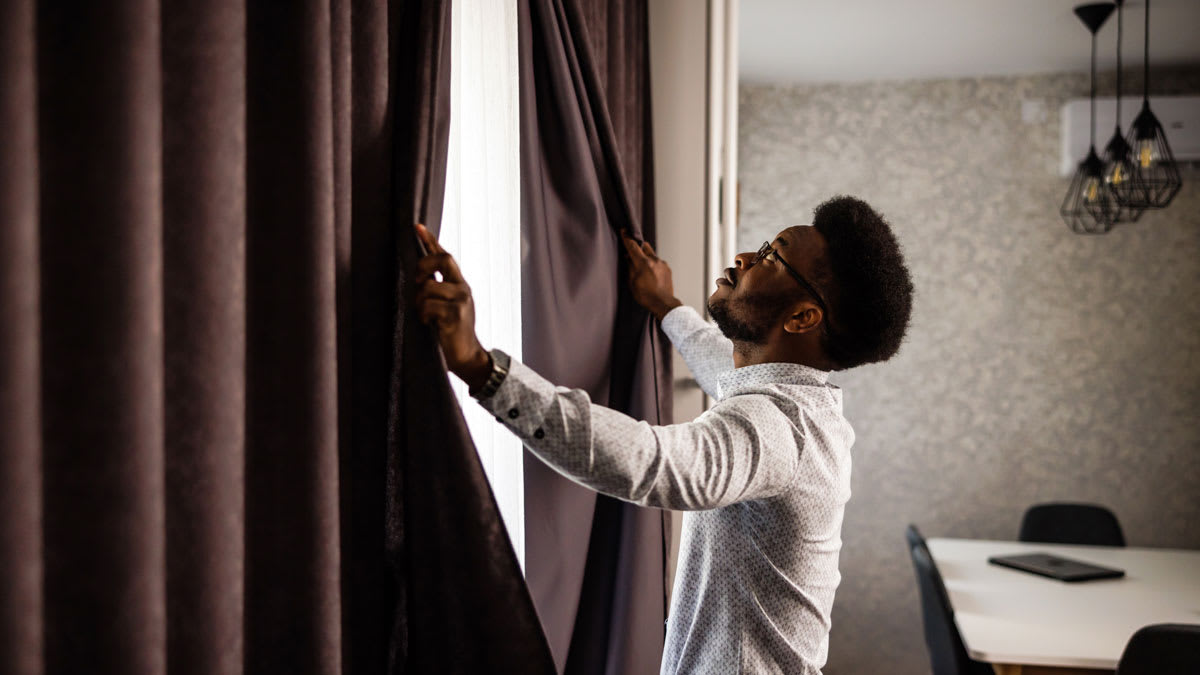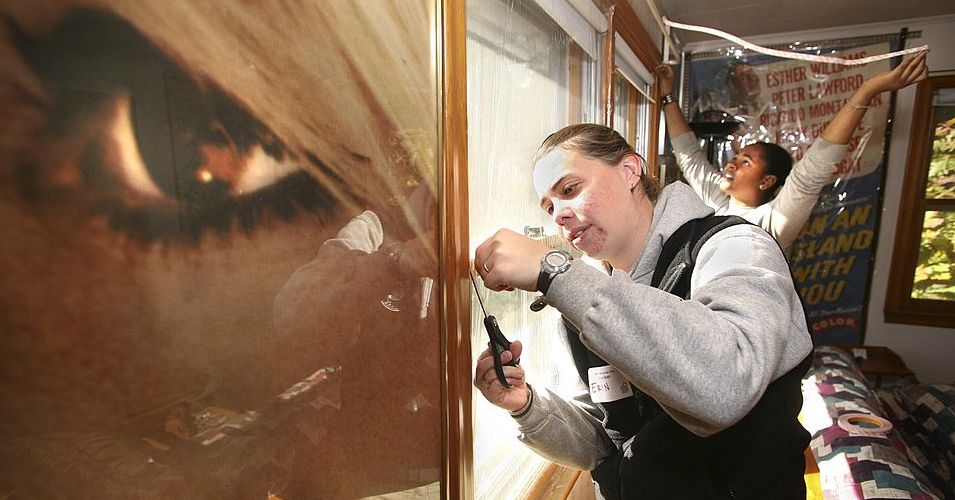
If light streams through your window as you’re trying to sleep—because, say, you have street lights or traffic nearby or you’re a shift worker—then blackout curtains may be worth considering. Our 2022 survey found that 88 percent of people who bought blackout shades or curtains in the previous year found them somewhat or very effective in helping them improve their sleep. That made the category the third most effective purchase for sleep, placing it just behind prescription medications and air conditioners or fans.
“Light plays a huge role in the timing of sleep,” says Chris Winter, MD, a neurologist and sleep doctor based in Charlottesville, Va., and host of the podcast Sleep Unplugged With Dr. Chris Winter. When the sun goes down, levels of the hormone melatonin increase, and we feel sleepy. Artificial light interferes with that natural process, suggesting to the brain that perhaps it’s not quite bedtime yet. This makes it more difficult to fall asleep.
If you have insomnia, light can be a distraction—whether you become fixated on the streetlight glow through your regular curtains or any clutter in your bedroom that the light makes all too obvious as you’re trying to sleep. “When you make it dark enough so that there’s nothing visually going on, it’s actually very difficult to stay awake,” Winter says.
Darkness can also reduce sleep fragmentation by making arousal in the middle of the night less disruptive. “If you wake up in the darkness, you may not realize you’ve woken up because nothing captures your interest and you’re able to fall quickly back asleep,” says Winter, who is also the author of “The Sleep Solution and the Rested Child.”
What’s more, a recent study suggests that even moderate amounts of light can affect your health. When healthy young adults were asked to sleep in a room with 100 lux of light (similar to what’s in a dim hotel hallway), they experienced elevated heart rate and blood pressure through the night compared with sleeping in a darker room.
Scientists are now wondering whether this elevation over time could explain a link between sleeping with the TV or light on with conditions such as diabetes, obesity, and heart disease. “Even though you’re sleeping, your brain is saying, ‘Something is going on here,’ and that brings the heart rate up. It’s not a relaxing situation,” says Phyllis Zee, MD, PhD, at the Northwestern Feinberg School of Medicine and co-author of the study.
That said, it doesn’t have to be pitch black for you to improve your sleep. If you’re going to invest in a blackout curtain, you want it as dark as possible—meaning, when you turn out the light, you can’t count your fingers. “But it’s a gradient; some light blockage is better than none,” Winter says.
In fact, if you have trouble waking up in the morning, a curtain that isn’t perfectly opaque may even be better for you. By allowing a small glow of natural light through come daytime, it can help signal your brain that it’s time to get out of bed, Zee says, while still giving your brain and body the time and space it needs to rest.









